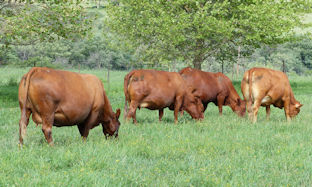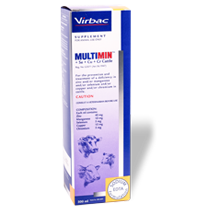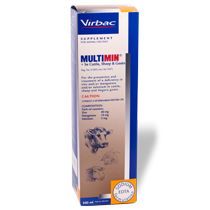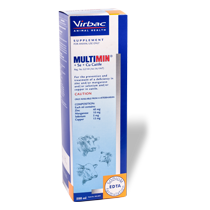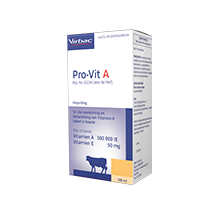
BEEF COW MANAGEMENT PRECALVING: Trace Mineral & Vitamin Supplementation
This is article 5 of 7 articles on this topic
The last two months before calving are probably one of the most important periods in the production cycle to ensure success.
This not only affects the successful birth of a calf with strong survivability, but also what happens to the calf and the cow after the birth process, to the success of the upcoming calving season and even up to and including weaning time.
Late pregnancy is the most critical time for trace mineral and vitamin supplementation in cows. The following factors make this supplementation a necessity:
- The trace mineral requirement of the cow increases dramatically during late pregnancy. Not only must the cow meet her own needs, but also those of the unborn calf. The fetus is totally dependent on the cow to be born with a good trace mineral status.
-
Even with a good oral supplementation program (licks) in place, the development of a trace mineral gap at this time is very likely, due to the increased need and the deficiencies that can be inherent in oral supplementation e.g. the role of antagonism, variable intake due to limited through space and dominance in the herd, relatively poor absorption of some trace minerals - especially inorganic trace minerals. A further complication during late pregnancy is that the cow's feed intake is limited due to the rapidly developing fetus which can limit rumen capacity - especially in the last month before calving.
-
To ensure that the calf is born with optimal trace mineral status. This can improve the survival of the calf directly after birth, as the immune system is trace mineral dependent and must be able to develop and function optimally as soon as possible after birth. If calves are put under stress or become ill, a tremendous amount of copper and zinc is released from the stores for use in enzymes to enable the immune system to function optimally.
-
The quality of colostrum. Trace mineral supplementation in late pregnancy can improve colostrum quality. This is measured by the amount of immunoglobulins (antibodies) in the colostrum. The immunoglobulins are responsible for maternal immunity (passive immunity transferred from the cow to the calf), which protects the calf against pathogens in the first phase of its life.
-
To strengthen the immune response of the cow with vaccinations during late pregnancy. Research clearly points to the benefit of a Multimin supplementation given at the same time as a vaccine - even if the cattle do not have suboptimal trace mineral levels at the time of vaccination! This benefit is also passed on to the calf through the good quality of the colostrum, as discussed above.
-
To make sure that the cow's trace mineral levels do not drop too much with calving. A cow gives up about 30% of her trace minerals during calving through the calf, the placenta and the amniotic fluid. If the cow's trace mineral levels before calving were therefore not optimal, she runs the risk
of having lower immunity. This can lead to an increased incidence of disease conditions after calving such as retained placentas, uterine inflammation, higher somatic cell count (SST) and mastitis. It can also reduce the ability of the cow to cycle and get pregnant again as soon as possible after calving.
All the above factors therefore necessitate the use of a well-balanced and proven injectable trace mineral supplement (Multimin® Se+Cu+ Cr) to bridge the trace mineral gap. An injectable trace mineral supplement like Multimin overcomes all the problems that can be experienced with oral supplementation. This is a certain way to effectively increase the trace mineral status of each cow during this critical time. Don't forget the simultaneous supplementation of Vit A & E (synergistic action between Vit A and Zn as well as Vit E and Se)!
6009230802DVN

